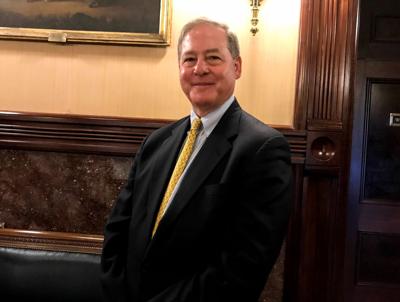The good news is that the agency that doles out tax incentives to recruit jobs to South Carolina has agreed to stop hiding so much public information from the public.
Henceforth, the S.C. Commerce Department will not redact the names of company executives and lawyers involved in incentive negotiations.
It will let us know, in most cases, whether companies are paying on average less than $15 an hour for the jobs we incentivize them to provide.
And when companies don’t live up to their end of the deal — for instance by not creating the jobs they promised in return for incentives — it will even start enforcing the clawback agreements that it has taught companies aren’t worth the paper they’re written on.
If that sounds underwhelming, then you’ve already anticipated the bad news: the fact that we have to consider this good news.
Of course, if you’ve been paying attention to government in South Carolina for more than, oh, about five minutes, you know that the bad news isn’t really news. We have a weak Freedom of Information law that is routinely violated because the penalty is low and isn’t even assessed unless someone is willing to spend the money to challenge violators in court. And to keep spending the money through appeals that state and local agencies know they’re going to lose.
That’s precisely what the Commerce Department has done since Sen. Dick Harpootlian started asking questions in 2019 about a couple of incentive deals that went bad. Rather than providing him the information state law required, the agency turned over heavily redacted documents that looked like a comedian's parody of government secrecy.
When the storied Columbia attorney filed a lawsuit and won a blistering judicial smackdown of the agency, the agency appealed — a classic tactic designed to convince people it’s not worth the effort to go to court.
But then Commerce Secretary Bobby Hitt retired and Harry Lightsey took over. And either because he’s a lawyer who knew he wasn’t going to be able to turn the ruling around or because he was someone new who didn’t have the sort of ownership of the secrets that Mr. Hitt had or perhaps because he’s more dedicated to open government, Mr. Lightsey reached out to Mr. Harpootlian about settling the lawsuit.
It took six months of negotiations, but a month ago the department announced it had reached an agreement, and last week the S.C. Court of Appeals dismissed the appeal under the terms of that settlement.
In addition to agreeing to end the most egregious violations cited in the suit, Commerce agreed to provide regular reporting on its incentives.
The agency also changed its FOI policy, acknowledging that incentive agreements are public once a deal is closed and committing to provide most information without charge as long as people make targeted requests rather than going on fishing expeditions. The fee schedule shows a surprising commitment to openness that other state and local agencies would do well to imitate — well, other than the $45 per hour charge for searching, retrieving and scanning larger search requests. That rate is much higher than other agencies charge.
Chris Kenney, an attorney in Mr. Harpootlian’s law office, told Columbia’s State newspaper that the settlement will ensure the public has “a snapshot of what types of jobs are being created pursuant to these deals without being invasive as to the individual company,” which will help us determine whether we’re getting our money’s worth for the incentives.
We welcome the openness that Commerce has promised to make standard operating procedure. More than that, we welcome Mr. Lightsey’s apparent interest in doing the public’s business in public. We recognize that the Commerce Department has a culture of secrecy that dates back to before it was even created, and we urge the secretary to continue to push back against that culture — and to remember that his boss, Gov. Henry McMaster, has been an advocate for government transparency throughout his political career.
Indeed, it was uncharacteristic of Mr. McMaster to allow that secrecy to continue; perhaps he was afraid of killing the golden goose, as some lawmakers actually warned would happen if we had too much openness.
Fortunately, Mr. McMaster’s Commerce secretary understands that open government isn’t just good for government critics such as Mr. Harpootlian. It’s good for business. And we look forward to Mr. McMaster lending any support Mr. Lightsey needs to build on the openness down-payment made in the lawsuit settlement.
It’s not a perfect agreement. In addition to that $45 per hour search fee, the agency continues to insist that it’s prohibited by law from telling us the value of job development tax credits it gives companies. The Legislature should clarify that this is public information, and it should codify the commitments made in the agreement — along with all the other changes it’s been putting off to make it more difficult for all state and local agencies to hide public information from the public.














